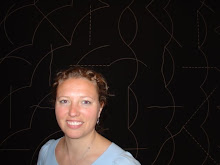Tinkers was full of tingles. The imagery of a man dying and reliving aspects of his life, while the reader learns about areas he never knew, was captivating. No sentimentality, no gore, just sweet endings to a sometimes bitter history. Renal failure, clocks, hallucinations, epilepsy, harsh winters, moonshine and excerpts from The Reasonable Horologist are all pretty new topics for the novels I’ve read. That Paul Harding intertwines them all so well that I look forward to each bit of the story, never knowing what will come next, is exceptional.
More about Harding’s writing style is that it was full of beautiful imagery. These were snippets of ideas and a day here or a day there in the lives of a father and son. Very little came in a straight line, allowing me to read as disjointedly as I did without feeling any loss of continuity. That I read this book for my new Montlake reading group (which is the biggest and oldest so far that I’ve attended in Seattle) means that I also got to be part of a great conversation about the book.
Overall, Tinkers received some extremely high praise in this circle. Those who’d attended the death of a parent were able to identify with the physical and mental changes described. Those who’d lived in cold weather or overcome adversity or experienced sufficient closure understood many of the novel’s themes. Only questions of all the unmentioned years still perplex. But this was not a memoir, and our principal character, George, was not interested, on his deathbed, in how his mother managed, and he did not dwell on how he got through school. No, George wanted to think about his father, and about all the money he’d stashed in his tool shed.
Each character of Harding’s novel has a particular set of impressions of life. Each is insightful. Each is limited. The novel felt true, and that is novel indeed.
